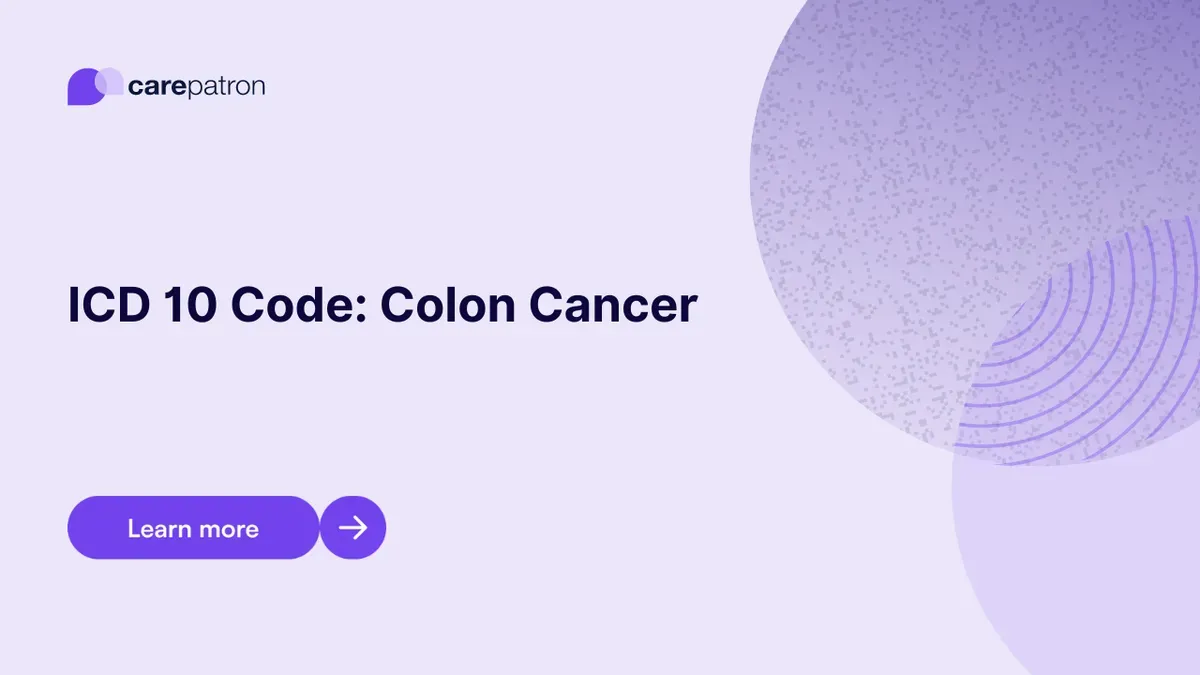
Colon Cancer ICD-10-CM Codes
Read this short guide and learn about colon cancer ICD codes you can use. Discover billing and clinical information here.
Use Code
Commonly asked questions
Yes. There is one that’s unbillable but we didn’t include that on the list above. It’s best not to use that because it’s invalid.
Colonoscopies are the best option. Other tests include, fecal tests, CBCs, CMPs, CT scans, X-rays, MRIs, PET scans, ultrasounds, and biopsies.
Healthcare professionals can treat colon cancer via polypectomy, partial colectomy, surgical resection with colostomy, chemotherapy, and targeted therapy.
EHR and practice management software
Get started for free
*No credit card required
Free
$0/usd
Unlimited clients
Telehealth
1GB of storage
Client portal text
Automated billing and online payments
